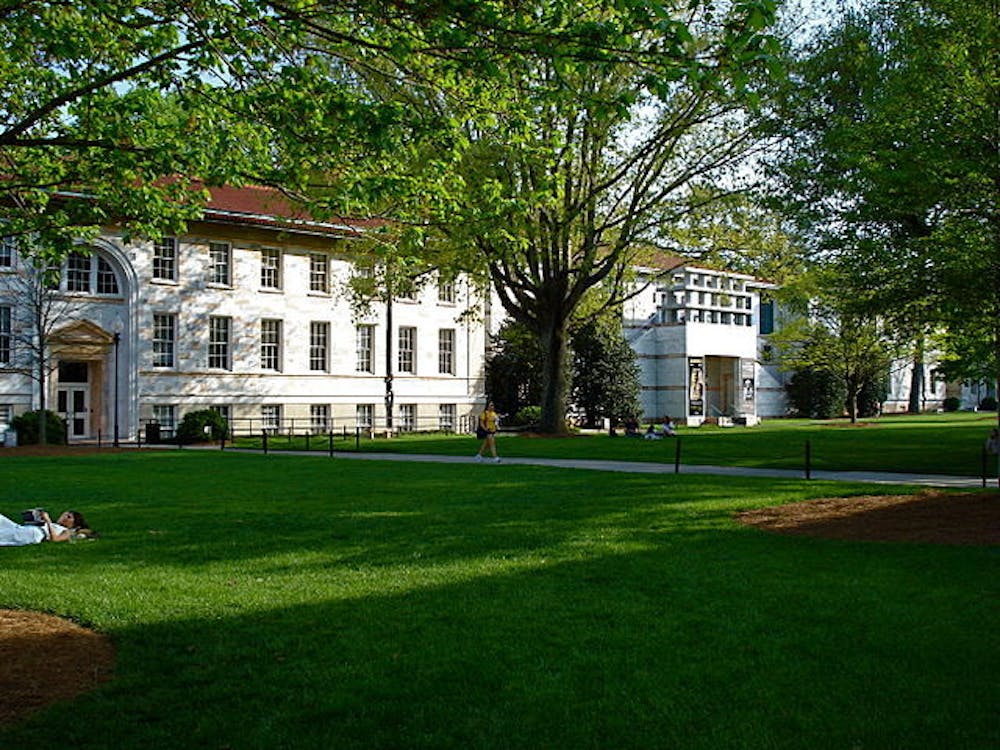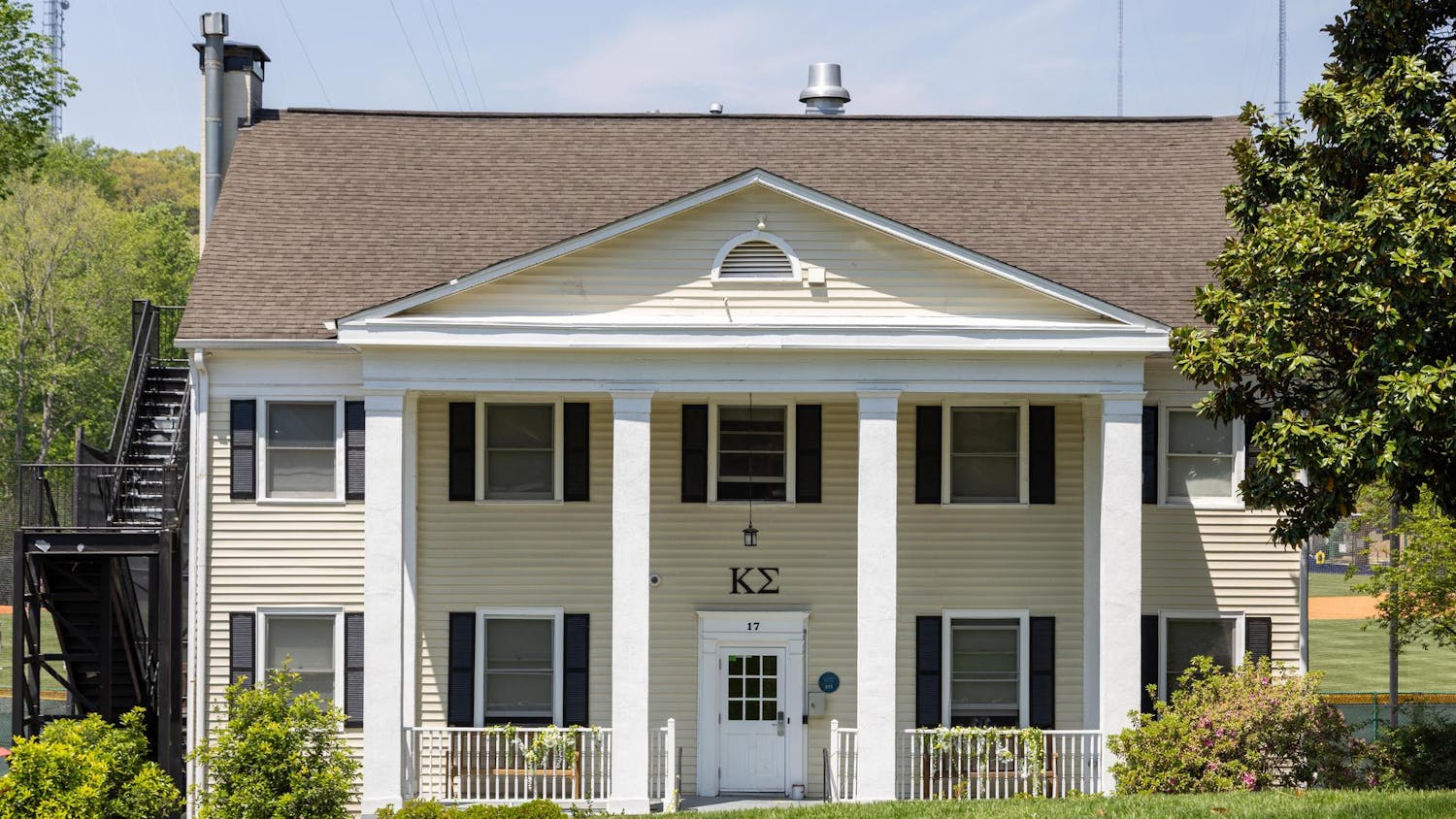
When Nava Klopper (25C) walked into her club meeting in November last year, she found the room nearly empty. She had joined the Queer Book Club months earlier, which started out with a room full of people. But as the weeks went on, the numbers dropped slowly but steadily, until one Monday, she was the only person there.
“The facilitator just sat there and I was like ‘you're a grad student and I'm an undergrad. What is supposed to happen?’” she said. “So, I just sat there for an hour.”
It was one of those classic, ridiculous first year moments.
At Emory, students have until the second semester of their sophomore year to declare a major. Klopper took the fast track. She came into Emory planning to major in women’s, gender and sexuality studies (WGSS). The two WGSS classes she took, one for the major and one elective, quickly rose to be her favorites in the first few weeks. She was sold. Klopper planned on doing a double major, but she was less sure of the second subject. Definitely not STEM, she said. Her first semester schedule also included potential subjects for a double major—sociology 101 and a freshman seminar in art history. She concluded that she wouldn’t pursue art history, but enjoyed the class, with its cozy first-years only atmosphere with only nine other students.
In November, Klopper registered for second semester courses. She wanted to enroll in a WGS class. As for the second major, Klopper was still unsure. She looked into registering for classes in English, history and African American studies. In the meantime, first semester started to creep its way towards finals. People around her seemed to lose steam in the slog towards finals; her peers’ participation in the freshman seminar dwindled.
Though she’d had finals in high school, college finals were different. At Emory, most of her finals were papers. Due dates were longer, and projects spanned multiple weeks.
But Klopper said the bigger transition was social.
“It feels like other people have friends and I don't,” Klopper said. “I'm sure everyone feels like that, so everyone doesn't have friends but thinks that everyone else does have friends.”
Like every other freshman, Klopper stepped onto campus unknown—something she hadn’t done since the start of high school. Being unknown was stressful, but it was also exhilarating, Klopper said. There were tons of new people, all navigating a new campus and looking to find their place on it. Early friendships were formed during orientation week, but happenstance and a little bit of luck kept them going after Orientation groups dispersed. Overlapping interests, a shared class or a chance encounter in the dining hall: one thing or another led them to cross paths outside of orientation week’s chaotic blur.
In the first months of freshman year, friendships were new and raw and unexplored. The friends who weren’t from orientation or other groups seemed to revolve around the dorms. It was hard to distinguish the difference between potential lifelong best friends and the people you ran into in the dorm lounge.
“It's hard to tell how permanent things are,” Klopper said. “People are friends with people because you live down the hall from them, but if you move away from each other, if you change roommates are you still going to be close?”
One sophomore told her that they moved in with their freshman year best friend for their second year at Emory, but barely talked to them.
Klopper’s friends from back home had a variety of freshman year experiences. She said that talking with them solidified Emory as the right decision. One of her friends went to Oregon State University, a big state school, but not near a city. Another friend went to a small liberal arts school outside of Boston. Emory struck the perfect in between both in size and location. Klopper liked having the balance of a liberal arts education with having grad students on campus and as TAs, as well as the accessibility to Atlanta. She liked that people, including her, were happy.
“People will complain about things, but no one’s ever like ‘I wish I were somewhere else,’” Klopper said.
For Klopper, getting off campus and exploring Atlanta was easier said than done. Attempting to get a haircut in Toco Hills, she did everything right. She downloaded TransLoc. She checked the shuttle schedule the night before. She showed up to Woodruff Circle and boarded the shuttle headed to Toco Hills. But, the shuttle went to the Clairmont Campus, and then it went back to Woodruff Circle and then it went to Clairmont Campus. The shuttle ping-ponged back and forth between campuses in an endless loop. Klopper almost wondered if MARTA would have been better.
“I feel like I understand the ways in which MARTA is bad, but I don't understand the shuttle system at Emory,” she said. “Some upperclassmen must have the secret to the shuttle.”
Someday, Klopper will be that upperclassman. As for freshman fall, Klopper wouldn’t change it.
“I don't think I could’ve imagined what it was going to be like,” she said. “I couldn't have imagined that I would make the friends that I did or make as many friends as I did or that I would like classes this much or that I would be able to do the types of assignments I did. I like Emory a lot.”







